Meet the team
Ed Jones (MS Innovation Design Engineering 2019)
Inisya Jafferjee (MS Innovation Design Engineering 2019)
Amir Afshar (MSc Innovation Design Engineering 2019)
Andrew Edwards (MSc Innovation Design Engineering 2019)
Get in touch
Website: theshellworks.com/
Instagram: /theshellworks/
Our project
The Shellworks is a series of machines that turn seafood waste into a versatile, biodegradable bioplastic. We use chitin, the world’s second most abundant biopolymer that is found in crustaceans, insects and fungi. Chitin needs to be chemically extracted from the source before it can be made into products. We have built a small-scale extractor that enables the initial process of drawing out the chitin from seafood waste.
The team met whilst studying on the Innovation Design Engineering Course delivered jointly by Imperial College London and the Royal College of Art. The idea for the Shellworks originated from our research into current approaches to dealing with food waste. From this we discovered that shellfish contain a naturally occurring plastic or biopolymer. Not only is chitin biodegradable, but it can be used as a fertiliser at the end of its life, has antimicrobial properties and certain performance qualities that are better than traditional plastics. We all wanted to address problems around food waste and plastic waste, so we very happy to discover an approach that could help solve both issues.
Previous research has investigated chitin as an alternative to plastic but, until now, the resulting products have remained within the laboratory The Shellworks seeks to address the manufacturing challenges by developing a series of machines that process chitin, opening the doors for mass manufacture and industry use of this potentially transformative material.
Using the machines we have created a range of prototype products that utilise the additional properties of chitin, such as anti-bacterial blister packs, food-safe carrier bags and self-fertilising plant pots. Our work at Imperial College Advanced Hackspace was central to exploring the different approaches to extracting the chitin and processing it to build a functional material.
Support from Hackspace and the wider Imperial community
What is really nice about the Hackspace is that it allows us to experiment with different techniques flexibly, quickly and safely without having to commit to one single approach.
Initially our work involved cleaning and cracking lobster shells and then testing different chemical processes to see if they could break the material down and get to the polymer. Once we had the chitin in a powder form we then had to test different ways to make the plastic, so again it was about being experimental and testing alternative approaches.
Being part of the Hackspace is really useful for exploring different approaches because there are always people from various disciplines, such as chemists, engineers and electronic experts to name a few. This is rare to find in labs or other research spaces.
What is really nice about the Hackspace is that it allows us to experiment with different techniques flexibly, quickly and safely without having to commit to one single approach.
Successes and learning
It’s been a fantastic achievement to make new discoveries within the manufacturing processes and to create new forms of material outputs with the same polymer. We have brought a fresh perspective to this problem and translated into a successful business. Alongside this, the creation of a truly multidisciplinary team has also been a huge achievement for us and allowed us to move much quicker within this area that requires expertise in a number of diverse areas.
We’ve had to try a lot of different approaches to ensure the material has the desirable properties and, with that, we’ve experienced many setbacks but have also learnt a lot about chemistry and material structures. By the nature of creating a new manufacturing process we are constantly experimenting and iterating our machines.
The future
We’ve received a significant amount of attention from investors and media but we are still at the proof of concept stage and resolving a lot of technical challenges. The next step of scaling up is quite demanding. The process has never been done in industry and we have to invent a whole new ecosystem which is quite challenging for a small start-up like ourselves.
We’re currently at Makerversity at Somerset House where we have a six month residency and access to workshops, which is providing great support at our current stage of development.
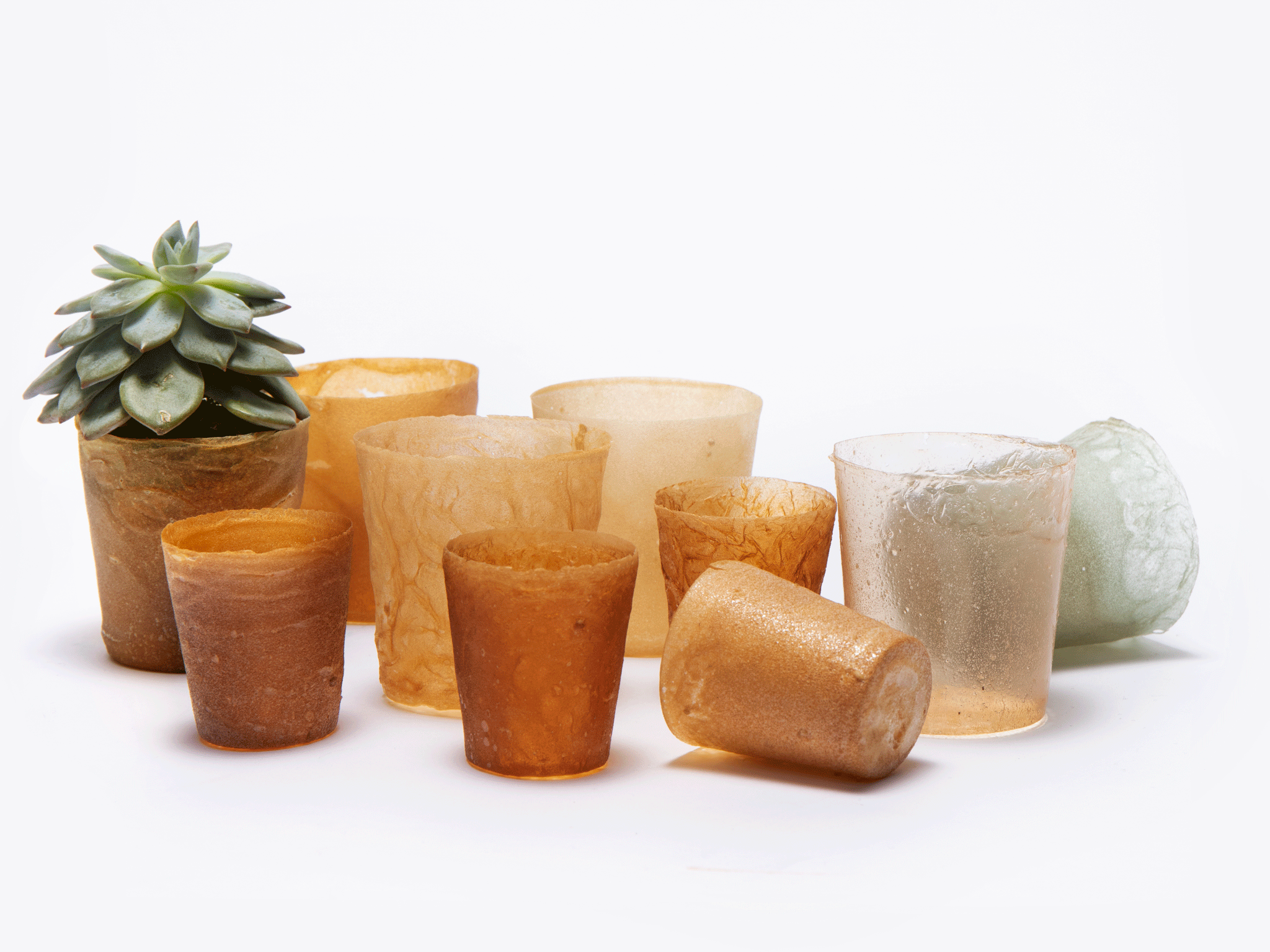
More from Hackspace
Discover what’s going on at the Hackspace.
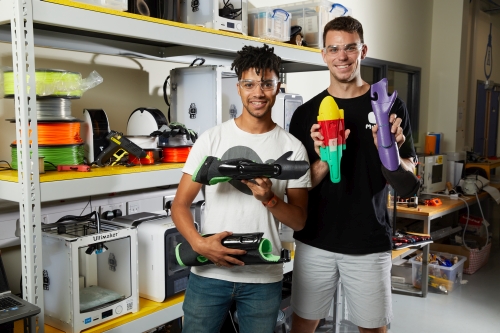
Read our success stories
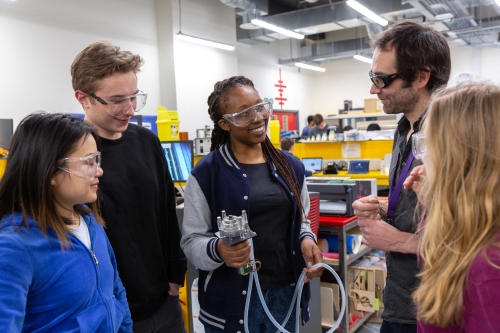
Work with us
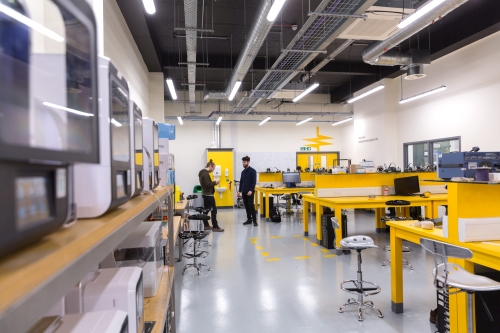
Our facilities
News
Catch up on the latest goings-on at Hackspace.
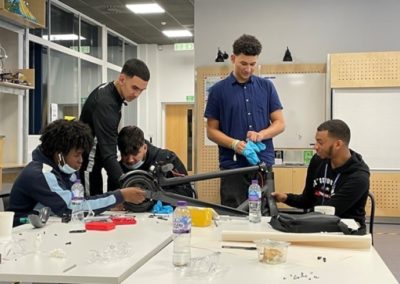
Imperial engineers work with local youth club to design and build e-scooters
Imperial has been working with North Paddington Youth Club to build electric scooters alongside the College's engineers.
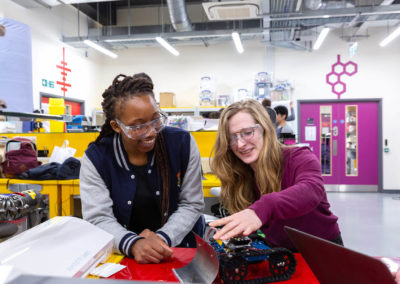
When Science and Art collide: White City Sculpture Challenge
The 2022 Sculpture Challenge will provide students the opportunity to collaborate and bring their vision to reality, resulting in the winning sculpture having a permanent presence at the White City Campus.
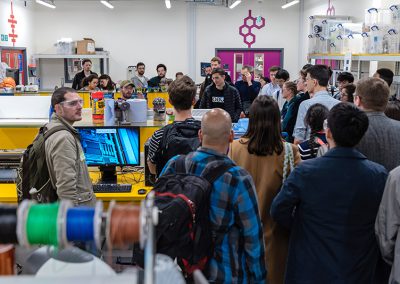
Hackstarter programme launches to support Imperial’s student makers and creators
Imperial College Advanced Hackspace launches Hackstarter to provide £500 prototype development grants.
© Copyright Advanced Hackspace | Powered by Imperial College London | Privacy Policy I Accessibility Statement | Website by Herd
